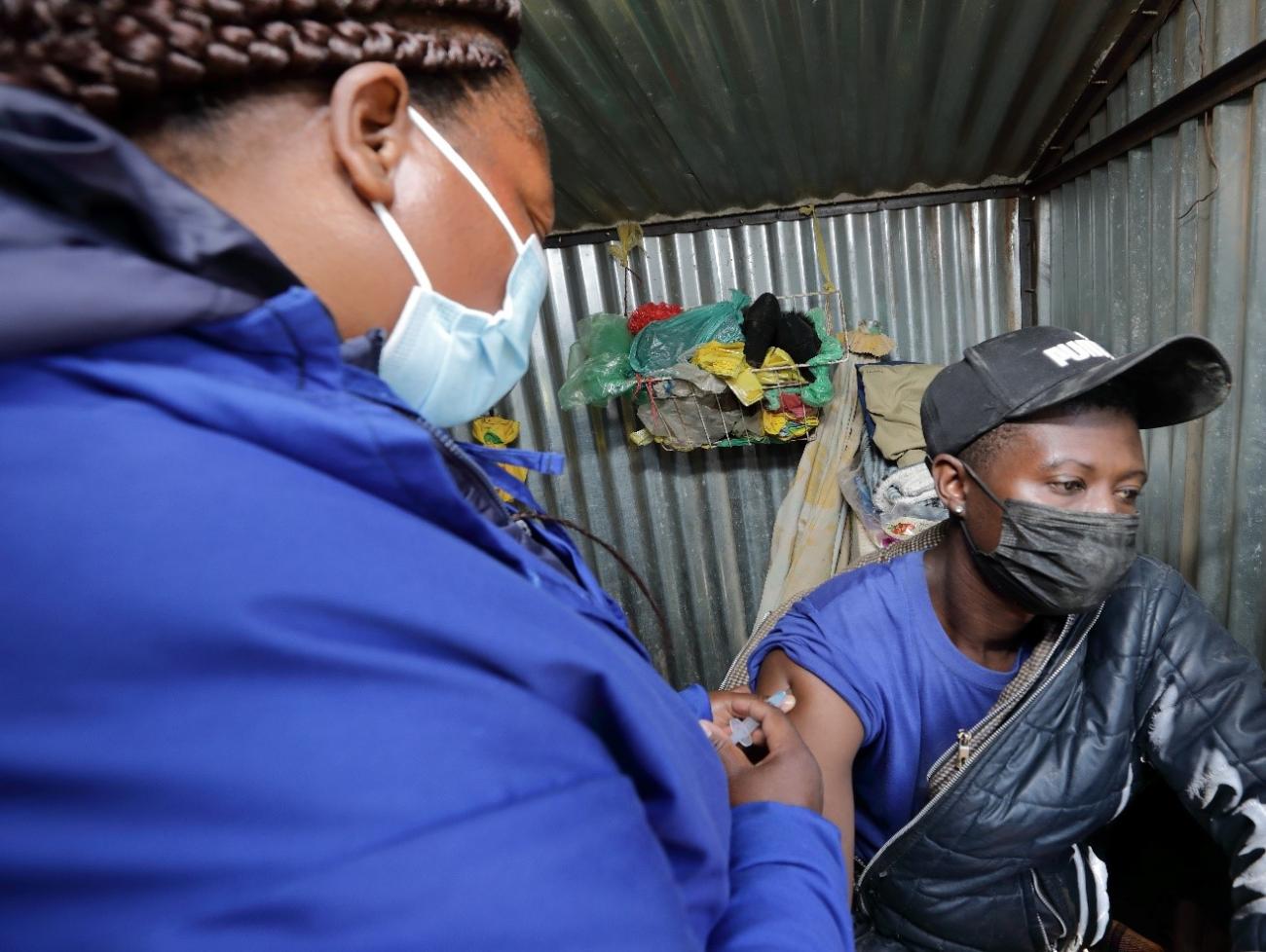Lesotho rolls out COVID-19 vaccines to 1.6 million people over 18 years

Lesotho sets out to vaccinate its adult population...
Lesotho set itself a very ambitious target of fully vaccinating its 1.6 million people by the end of 2021. This call was re-echoed by Lesotho's Prime Minister Moeketsi Majoro when addressing street vendors, bus and taxi operators at the central market, and taxi rank in the capital city, Maseru, recently. The Prime Minister called on all street vendors and transport operators to take the Covid-19 vaccines now that the country is rolling it out to everyone above the age of 18.
Nqakoe Khachane, a truck driver from the Berea district who received his jab of the Johnson and Johnson vaccine, is among the many Basotho transport operators who headed the Prime Minister's call and lined up for this life-saving vaccine in his home district.
"Covid-19 has affected our livelihoods negatively. We could not work during the lockdowns, and we lost our income over the past one and half years. I am happy that I got vaccinated today and that I will be protected from getting sick. I am going to encourage fellow drivers to do the same", said Nqakoe.
The UN supports the Government of Lesotho in its response to COVID-19 and the national COVID-19 vaccine campaign roll-out. This support is in vaccine demand generation and community engagement, vaccine supply, logistics, and forecasting. Together with the United Nations Children’s Fund (UNICEF), The World Health Organization (WHO), the United States Government, the African Union (AU), and other local partners, this support has resulted in the Ministry of Health vaccinating over 698 383 Basotho with Covid-19 vaccines.
As the country rolls out its COVID-19 vaccination campaign, myths and misinformation still abound in communities, and there is a need to understand and address the myths. To this end, UNICEF has supported the Ministry of Health to undertake a Rapid Assessment Survey and social listening exercise in 5 districts to understand Basotho's knowledge, acceptance, and information needs about the COVID-19 vaccine.
This exercise revealed that much as knowledge about the vaccine is high, at 80%, there are still some information gaps that fuel the myths and misinformation. It also highlighted general information gaps amongst the study population about the effectiveness of the vaccines, their side effects, and whether a person can still get infected with the coronavirus even after vaccinating.
Using the results of this assessment, ongoing social media listening, and an earlier survey targeting health workers, the results have been used to inform communication planning for the introduction and roll-out of the covid-19 vaccine in the country and related programming. The messages and strategies aim to respond to myths and misinformation around the COVID-19 vaccine, create demand and acceptance, and generate trust in the national health system's ability to deliver on this monumental task.
Engagement through radio has been used to reach a broad audience with vaccine information. The assessment also revealed that 54.2% of people had cited radio as the most preferred channel of information. To this end, UNICEF and other partners are supporting the Ministry of Health with radio slots where officers from the Ministry of Health respond to questions from the public on the vaccine and Covid-19. The slots are also used to make public announcements about vaccination dates and locations and airing jingles promoting the vaccine.
The same survey also revealed that 19.5% of the study population expressed their preference for face-to-face communication in addition to other forms such as radio. To respond to this request, targeted Health talks before a vaccination moment are another engagement strategy that the Ministry of Health uses to address information gaps and myths.
According to Nurse Relebohile Tongoana of Loretto Clinic, health education is vital because different populations have varying information needs.
"We do health talks before the COVID-19 vaccine to our clients and to answer questions and allay fears about the vaccine, check their health status, and generally make them comfortable. "We have observed that after the health talks, people readily accept the vaccine as they appreciate its benefits. This is because in the talks we thoroughly explain the benefits of the vaccine, the side effects, what to do if they encounter and when to come back for the nest does."
The UN continues to support community engagement by working closely with civil society structures, village health workers, community leaders, churches, and local associations to educate communities on COVID-19 vaccines. UNICEF is also supporting the country with implementing its national COVID-19 vaccine deployment strategy that is helping steer the country towards fully vaccinating its 1.6 million people.





